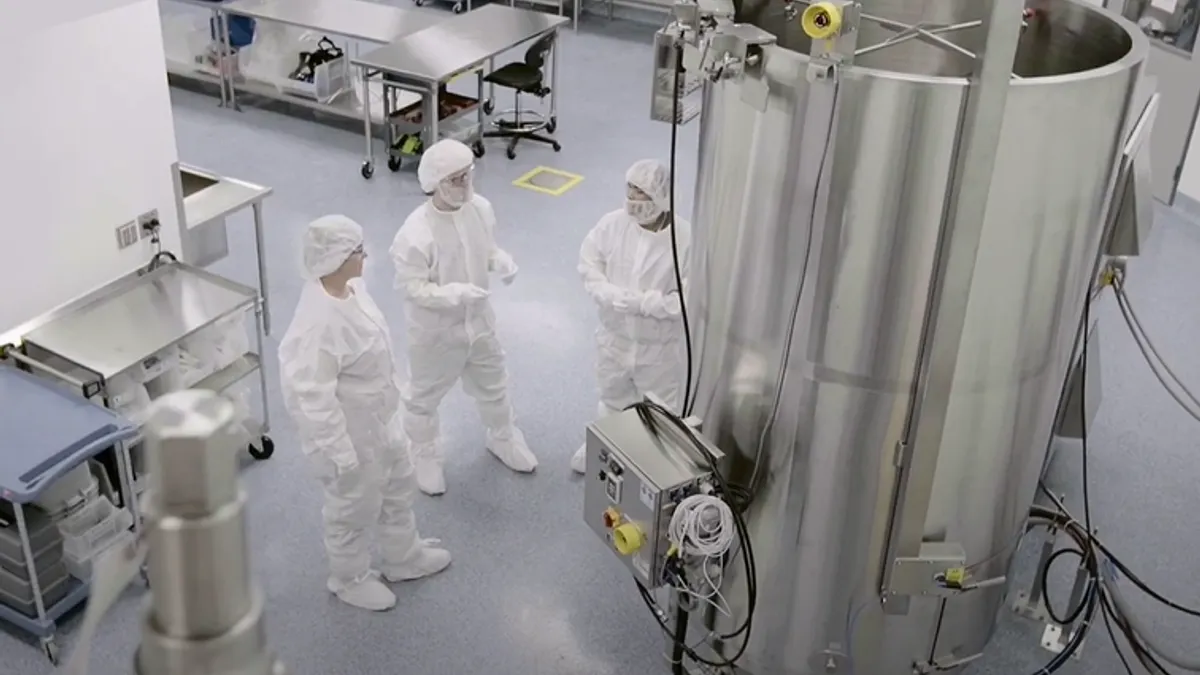BioMarin is recasting some of its executive team, announcing Wednesday the appointments of two pharmaceutical industry veterans to direct the company’s dealmaking and research and development operations.
Effective Sept. 30, Greg Friberg will assume the role of chief R&D officer. Friberg is joining after nearly two decades at Amgen, where he held various leadership positions, most recently vice president of global medical affairs for the company’s portfolio of rare disease drugs. He will replace Hank Fuchs, who, over the last 15 years, oversaw the development of five of BioMarin’s now-marketed medicines.
"More than half of our marketed products were approved under Hank's leadership,” said Alexander Hardy, BioMarin’s CEO, in a statement. “He has had a profound impact not only on BioMarin, but on the lives of thousands of patients around the world.”
BioMarin said Fuchs is retiring, but will stick around in an advisory capacity through March 3.
A week after Friberg onboards, James Sabry is set to start as BioMarin’s chief business officer. A veteran of Roche, Sabry retired from the Swiss pharmaceutical giant earlier this year. He led 1,200 transactions during his career, according to BioMarin, and has a knack for “identifying innovation at all stages of development.”
Hardy called Sabry “one of the industry's most astute dealmakers,” and said that, as chief business officer, he will be responsible for finding “important and appropriately sized transactions that support our already strong outlook.”
BioMarin said its current chief corporate strategy and business development officer, Brinda Balakrishnan, has chosen to leave by Oct. 1. The company noted that deals led by Balakrishnan brought in nearly 20 portfolio assets and diversified its pipeline of research programs.
“Her scientific depth and understanding of the industry have been critical in ensuring that BioMarin is well-positioned for the future,” Hardy said.
The new hires add to what’s become a year of transformation for BioMarin. The company’s long-time chief executive Jean-Jacques Bienaimé stepped down late last year, to be replaced by Hardy, who had just spent four and a half years as CEO of Roche’s research arm, Genentech.
In an effort to save money earlier this year, BioMarin pared down its list of research projects and curbed spending on a closely watched gene therapy for hemophilia. Clinical trials had shown a one-time infusion of the therapy, known as Roctavian, sharply reduced bleeding rates and the need for supplementary clotting protein. After multiple delays, the Food and Drug Administration approved Roctavian last summer.
Both BioMarin and Wall Street thought the therapy would be a highly sought after treatment option. Analysts had even penciled it in as a potential blockbuster product. But uptake has been much slower than anticipated, due in part to a multimillion-dollar price tag and trepidation among patients. As a result, BioMarin this month said it will limit sales of Roctavian to just three countries: the U.S., Germany and Italy.
The company also plans to pause production at a Roctavian manufacturing site and stop enrolling new patients in clinical trials of the therapy. Altogether, the changes should cap annual expenses directly tied to Roctavian at about $60 million a year by 2025.
While BioMarin has pulled off a rare achievement for any biotechnology company, bringing eight of its own drugs to market, it hasn’t been profitable for most of its 30 years in business. In 2023, the company recorded total revenue just north of $2.4 billion and income of $158 million.













